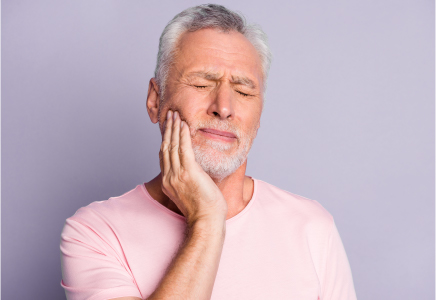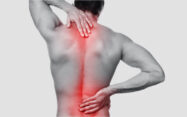Target Area: Jaw/TMJ
Not Sure if Therapy is Right for You?
Have a free discovery call to talk with one of our therapists.

All About TMJD
Treating TMJ: Non-Surgical and Surgical Options Temporomandibular joint disorder (TMJD) is a condition that affects the jaw joint and the muscles responsible for its movement. In addition to surgical treatments, there are several non-surgical treatments available for...
Where is My Jaw/TMJ Pain Coming From?
Understanding Jaw Pain
Jaw pain can impact speaking, chewing, and daily tasks. The temporomandibular joint (TMJ) controls jaw movement. When strained, it may cause Temporomandibular Joint Disorder (TMD). However, TMJ physical therapy often relieves discomfort and restores normal function effectively.
What Causes Jaw Pain?
TMJ physical therapy treats pain from Temporomandibular Joint Disorder (TMD), caused by jaw injuries, arthritis, or misalignment. Symptoms like jaw pain, clicking, or locking can make it hard to eat or speak comfortably, but therapy offers effective relief.
Other Causes of Jaw Pain
Other causes of TMJ pain may involve poor posture, muscle tension, bruxism (teeth grinding), or complications after oral surgery. Regardless of the cause, physical therapy for TMJ pain can provide targeted treatments to address these issues.
How TMJ Physical Therapy Can Help
Incorporating TMJ physical therapy into your treatment plan can greatly enhance your quality of life. Moreover, therapists use targeted exercises and manual techniques to reduce pain, improve jaw motion, and strengthen TMJ muscles, which can prevent future discomfort and misalignment.
Patient Education
At Elite Therapy Solutions, our therapists provide education as a part of your TMJ pain treatment plan. This may include education on posture correction and relaxation techniques to help ease tension in the jaw and neck, addressing both the symptoms and causes of your discomfort.
Experienced Physical Therapists in TMJ Physical Therapy
If you have persistent jaw pain or TMD / TMJ symptoms, it’s important to consult an experienced healthcare professional. We offer specialized TMJ physical therapy treatment at our Pennsylvania clinics. Call us today to schedule your consultation.

Common Jaw/TMJ Pain Conditions
- TMJD
- Arthritis of the Jaw
- Jaw Trauma or Injury
- Myofascial Pain Syndrome
- Joint Hypermobility
- Trigeminal Neuralgia
What We Treat
Assessment and Diagnosis
A physical therapist will conduct a thorough assessment to identify the specific causes of your jaw pain. This may include evaluating posture, range of motion, muscle strength, and any joint dysfunctions.
Muscle Strengthening and Stretching
This involves specially-designed exercises to strengthen weak muscles and stretch tight muscles in the neck and jaw area.
Joint Mobilization
Manual therapy techniques, such as joint mobilization and manipulation, may be used to address joint restrictions and improve mobility in the neck and jaw.
Posture Correction
We can provide guidance on improving your posture through exercises and ergonomic recommendations.
Modalities for Pain Relief
Therapeutic modalities such as heat, cold therapy, ultrasound, dry needling, or electrical stimulation may be used to alleviate pain and reduce muscle tension.
Education on Jaw Habits
If jaw pain is related to habits like teeth grinding or jaw clenching, we can educate you on behavior modifications and may recommend interventions like mouthguards.
Stress Management
Stress is often a contributing factor to muscle tension and jaw pain. We can teach you stress management techniques, including relaxation exercises and mindfulness, to help manage and reduce stress.
Functional Training
We may incorporate functional exercises to improve jaw movement and coordination, enhancing the ability to perform daily activities without pain.
Home Exercise Program
Patients are often provided with a personalized home exercise program to continue their rehabilitation at home. Adhering to these exercises can help with long-term relief.
Collaboration with Other Healthcare Professionals
In some cases, physical therapists may collaborate with dentists, oral surgeons, or other healthcare providers to ensure comprehensive care for conditions like TMJD.









